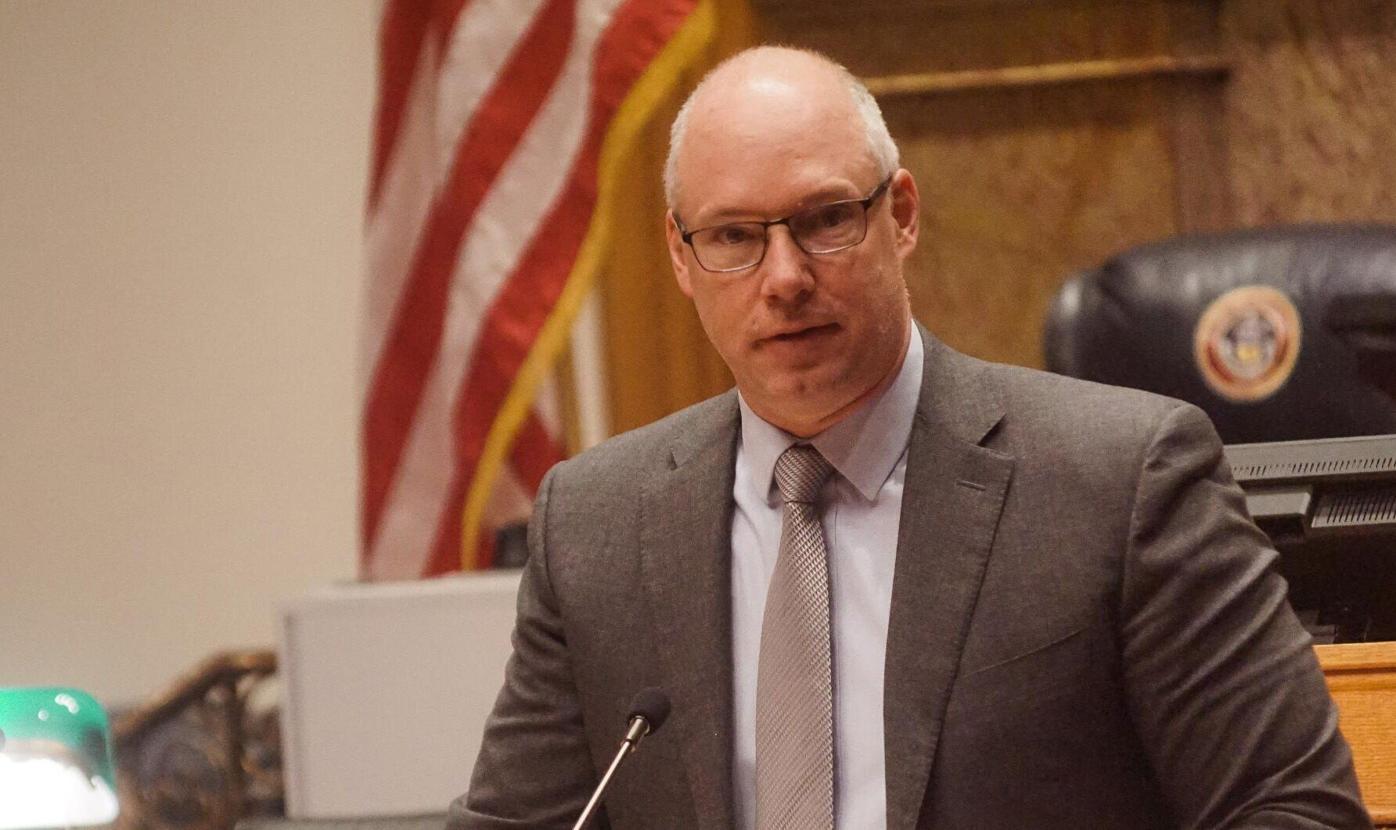State Supreme Court declines to hear appeal on Priola recall

In this file photo, state Rep. Kevin Priola, D-Henderson, speaks on Military, Veterans and MIA/POW Appreciation Day on Feb. 6, 2020, at the Colorado Capitol in Denver. Priola is facing a recall campaign after switching parties from Republican to Democrat on Aug. 22, 2022.
(Colorado Politics file photo)
The Colorado Supreme Court turned down an appeal from the backers of an effort to recall state Sen. Kevin Priola, a move that pushes future recalls efforts back until after the General Assembly goes back into session on Jan. 9.
The issue is who gets to sign the recall petitions for Priola, a Henderson Democrat who earlier this year changed his party affiliation from Republican. Michael Fields of Advance Colorado Action initiated a recall of Priola just two days after Priola’s party-switching announcement.
Priola has represented Senate District 25 since 2016, a district in eastern Adams County where Democrats outnumber Republicans in active voter registrations, although unaffiliated voters outnumber both.
But under the new map drawn by the Colorado Independent Redistricting Commission, Priola will be part of Senate District 13, which includes a much smaller portion of Adams County and is more based in Weld County. Active voter registrations for Democrats and Republicans are almost evenly matched.
The district is currently represented by Sen. John Cooke, R-Greeley, who is term-limited. Priola will be term-limited in 2024.
Secretary of State Jena Griswold announced voters in Senate District 13, which Priola won’t represent until January, would be eligible to sign petitions and vote on the recall. Under Griswold’s announcement, voters in Senate District 25, who elected Priola in 2016 and re-elected him in 2020, would not have a say in his recall.
That led to the lawsuit in Denver District Court by Democrats, challenging the decision as unconstitutional, among other reasons. Colorado Over Party and plaintiff Frederick Sandoval, a former Adams County Democratic party official who moved into SD25 in 2021 , maintained the recall could wait until January, when Priola actually represents SD 13.
Denver District Court Judge Marie Moses issued a temporary injunction on Oct. 9, blocking any further action by Griswold’s office on Priola’s recall.
Fields said at the time they would continue to collect signatures in SD13, and told Colorado Politics Thursday they are still looking at legal options.
“But we’ve collected over 20,000 signatures already. We’ll revisit the recall in January if we can’t do it now,” he added.
Griswold originally determined the recall needed 18,291 valid signatures, although that number could change come January.
Curtis Hubbard, a spokesman for Colorado Over Party, told Colorado Politics the recall was “politically motivated” (rather than based on Priola’s voting record or malfeasance, standard reasons for recalls in the past) “and was based on unsound legal reasoning. We’re pleased the Court agreed with us.”
Colorado GOP Chair Kristi Burton Brown slammed the Supreme Court’s decision.
“With this news, it’s clear that voters in Weld and Adams counties are being denied full and equal representation. They’ve been denied the right to choose their own representative, even though the recall was on track to succeed,” Burton Brown said. “Voters in Weld and Adams are experiencing the results of one-party control of all branches of government – including the judicial branch. The judge who shut down the recall was recently an activist Democrat donor. Colorado’s executive branch, legislature, and the courts are run by liberal Democrats who are closing the door on democracy by shutting down citizens’ rightful attempt to recall an elected official.”
Neither the high court nor the Denver District Court rulings indicated that Fields or voters in SD 13 could not launch a recall after the legislative session starts on Jan. 9.
Moses was appointed to her post in March 2021 by Gov. Jared Polis. While TRACER records show she made contributions to the Democratic Party and to candidate campaigns, the last one — to Attorney General Phil Weiser — came eight days before she was appointed to the court. She has not made any contributions since her appointment.
Priola, who served eight years in the House and six in the Senate as a Republican, announced in August he was changing his affiliation to the Democratic Party. The announcement, while not completely unexpected, made the job of Republicans hoping to wrest control of the state Senate away from Democrats that much harder.
Democrats held a 20-15 advantage during the 2021 and 2022 sessions. There are seven seats considered competitive in the November election, two currently held by Republicans, one held by a Democrat and the rest open seats, but previously held by Democrats.
Priola’s decision meant Republicans would have to hold the two they already have, and win four out of the five other seats.
At the beginning of the year, many political observers believed the 2022 election could be a wave year for Republicans, in part because the President’s party usually loses seats in Congress, and those waves can extend into Colorado. But since the Dobbs decision in June overturning Roe v. Wade, political observers have tempered that view, raising the possibility that Republican gains will be minimal, if at all.
The appeal to the Colorado Supreme Court, raised by Fields’ attorney, Suzanne Taheri of the Maven Law Group, was filed under a Rule 21 motion that in effect allowed the petitioners to bypass the state court of appeals.




